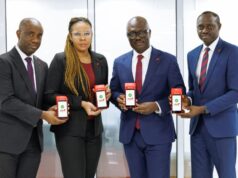 Olusegun Awolowo, Executive Director, Nigerian Export Promotion Council (NEPC), has identified 13 National Strategic Export Products (NSEP) targeted at replacing crude oil.
Olusegun Awolowo, Executive Director, Nigerian Export Promotion Council (NEPC), has identified 13 National Strategic Export Products (NSEP) targeted at replacing crude oil.
Speaking in Abuja on Tuesday, Awolowo said that the NSEPs were also to shore up the country’s foreign exchange earnings.
He said that the products were grouped into three categories, agro industrial, mining related products and oil and gas industrial products.
“For agro industrial, it has palm oil, cocoa, sugar, rice and cashew while mining related are cement, Iron ore/metals, auto parts/cars, aluminium.
“The other oil and gas industrial products have petroleum products, fertiliser/urea, petrochemical and menthol,’’ Awolowo said.
Awolowo said the key initiatives for promoting the sector, especially in the areas where the council had comparative and competitive advantages were targeted through its various programmes.
“Our collective attention should be drawn to the indispensable imperative of redirecting our country’s economy away from crude oil to a non-oil export base.
“NEPC has always been prepared to continue to spearhead this cause in order to increase contribution of the sector to national GDP through various intervention programmes and projects,’’ he said.
Awolowo said the introduction of One-State-One-Product (OSOP) initiative would enable each state in the country to choose a product for development along its entire value chain for promotion into a brand for export market.
He said the council would spearhead advocacy by promoting choice of products, market specialisation, improvement on quality, increase in quantity produced and market segmentation.
According to him, it would also enhance the competitiveness of such products in the international market.
Awolowo said the council had developed the Nigeria Diaspora Export Programme (NDEX) to take advantage of Nigeria’s large resident population abroad.
“Using the NDEX platform as framework for virile partnership, Nigerians resident abroad are now being invited to work with government through NEPC’s NDEX.
“The programme has three platforms: establishment of Nigerian heritage city – a cultural enclave that will warehouse goods of Nigerian origin.
“Others are cuisine beyond borders – standard restaurants that showcase Nigerian food and formalisation of trade in Nigerian diaspora products by encouraging interested Nigerians resident abroad to invest in export business,’’ he said.
Awolowo said the U.S. government had renewed the African Growth Opportunity Act (AGOA) for another 10 years which would be the longest in the history of the Act.
He said the council had developed a strategy to ensure better performance of non-oil exports to the U.S. under the programme.
“An AGOA resource centre is operating at the council’s Apapa office in Lagos, providing sensitisation workshops and seminars to offer advisory roles and build capacity for products intended for the U.S. market.
“NEPC is also in partnership with the U.S. government’s West Africa Trade Hub to increase Nigeria’s chances of positioning better for AGOA,’’ Awolowo said.
According to him, the council plays a prominent role in the established Trade and Investment Framework for Africa (TIFA) as well as Nigeria-U.S. Joint Economic Partnership Committee (JEPC).
“We attend and play active part at the TIFA meetings to drive trade and commerce, especially for the developing nations,’’ he said.









